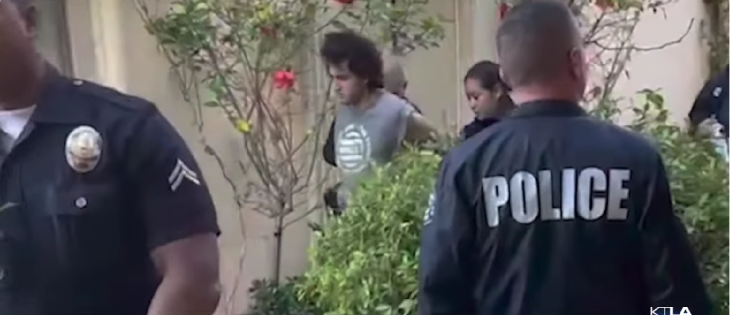Earlier this month Governor Gavin Newsom signed Senator Scott Wiener’s (D-San Francisco) Senate Bill 357, the Safer Streets for All Act. The Legislature passed SB 357 last year, but Senator Wiener held the bill at the Senate desk, delaying its transmittal to the Governor.
SB 357 repeals a provision of California law criminalizing “loitering with the intent to engage in prostitution.” This criminal provision — arrests for which are based on an officer’s subjective perception of whether a person is “acting like” or “looks like” they intend to engage in sex work — results in the disproportionate criminalization of trans, Black and Brown women, and perpetuates violence toward sex workers.
“Current law essentially allows law enforcement to target and arrest people if they are wearing tight clothes or a lot of make-up. Many of those impacted by this law are Black and Brown trans women. Pride isn’t just about rainbow flags and parades. It’s about protecting the most marginalized in our community. I urge Governor Newsom to sign SB 357,” Wiener said.
SB 357 is sponsored by a large coalition made up of former and current sex workers, LGTBQ groups like Equality California and Transgender Gender-variant and Intersex Justice Project (TGIJP), and civil rights groups like the ACLU. The Coalition to Abolish Slavery and Trafficking (CAST LA) is supporting the legislation.
“SB 357 repeals a Jim Crow law that criminalized Black and trans people in public spaces,” said Fatima Shabazz of the DecrimSexWorkCA Coalition.
SB 357 does not decriminalize soliciting or engaging in sex work. Rather, it simply eliminates an loitering offense that leads to harmful treatment of people for simply “appearing” to be a sex worker.
“This crime is so subjective and inherently profiling that it allows a police officer to arrest someone purely based on how they are dressed, whether they’re wearing high heels and certain kinds of make-up, how they’re wearing their hair, and the like. This criminal provision is inherently discriminatory and targets people not for any action but simply based on how they look. People who engage in sex work deserve to be treated with dignity and respect,” Wiener’s offier said in a press release. “Criminalizing sex work does not make sex workers or communities safer. Most criminal penalties for sex workers, loitering laws included, do nothing to stop sex crimes against sex workers and human trafficking. In fact, loitering laws make it harder to identify trafficking victims; trafficking victims are often afraid to come forward in fear of being arrested or incarcerated.”
In February of 2021, a similar piece of legislation to repeal this type of loitering ban became law in New York. SB 357 is part of the movement to end discrimination against and violence toward sex workers, especially the most targeted communities — trans, Black, and Brown people. SB 357 is co-sponsored by Positive Women’s Network – USA, St. James Infirmary, SWOP LA, Trans Latin@ Coalition, Asian Pacific Islander Legal Outreach, Equality California and ACLU California Action.
Under prior law, it was a crime to loiter in a public place with the “intent” to commit a sex work-related offense. But this law could be broadly interpreted, and thus allows for discriminatory application against the LGBTQ community and people of color. Law enforcement can use a non-exhaustive list of circumstances to subjectively determine if someone “intends” to engage in sex work, including factors such as speaking with other pedestrians, being in an area where sex work has occurred before, wearing revealing clothing, or moving in a certain way. Because current law regarding loitering is highly subjective and vague, law enforcement officers disproportionately profile and target Black and Brown transgender women by stopping and arresting people for discriminatory and inappropriate reasons. This is how Black and Brown transgender women get arrested and cited for simply walking on the street. It also gives law enforcement the ability to more easily target and arrest sex workers.
People in the LGBTQ, Black, and Brown communities report high rates of police misconduct throughout the United States and are disproportionately affected by police violence. Transgender people who have done street-based sex work are more than twice as likely to report physical assault by police officers and four times as likely to report sexual assault by police. A Black person is 3.5 times more likely to be shot by police than a white person. These statistics are a daily reality that transgender, Black and Brown people face and lead to mistrust of law enforcement.
“We hope that the Safer Streets for All Act will help people understand how policing does not create public safety, and will immediately deprive police of one tool they use to harass and oppress folks based on race and gender,” said Ashley Madness of SWOP LA and the DecrimSexWorkCA Coalition.
SB 357 will repeal a discriminatory law that makes it a crime to loiter with the intent to engage in sex work, given that it fails to prevent street-based sex work and disproportionately results in the criminalization of transgender people and communities of color.






















